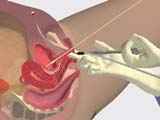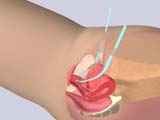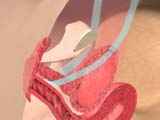Urinary Incontinence
Few women consult gynecology clinics complaining of urinary incontinence (Inability to control urination ),and it’s considered to be strange, especially when it is known that this problem is the most common problem, mainly in those women who underwent vaginal delivery frequently or difficult deliveries or that who is post menopause.
Those women are divided into three groups:
- A- Those who feel the problem and look for a solution.
B- Those that feel the problem and are embarrassed from mentioning it.
C- Those who think that urinary incontinence is a normal thing that happens to all women, and not consider it to be a medical problem that should be treated.
Studies have proved that for 60% of women complaining of urinary incontinence, their daily life is affected and for the remaining 40%, their sexual life is affected.
In (75%) this problem affects their mental health, while (20%) of those women have considered that life has become unbearable.
Types of Urinary Incontinence:
- A- Stress incontinence: It is the loss of the ability to control urination unconsciously with any sudden stress like laughing, coughing, moving and sneezing.
B- Urge incontinence: It is the loss of ability to control urination unconsciously after the sudden feeling of urge to urinate.
C- As mentioned before the urinary incontinence can happen as a result of recurrent pregnancies and deliveries because they cause an additional load on the bladder and pelvic muscles affecting the sphincter that controls the passage of urine and the weakness of the detrusor muscle may happen. This is caused as a result of recurrent bladder infection, chronic cough or hormonal changes (that happen in post menopause).
Treatment of Urinary Incontinence:
The ways of treatment depend on the type of incontinence:
Natural treatment For Urinary Incontinence:
It’s done by teaching the patient physical exercises that aim to strengthen the pelvic muscles to support the bladder and different studies found that doing those exercises in a right way could help more than 50 % of ladies and their problem ended forever while others had significant improvement.
Medical treatment For Urinary Incontinence.
Surgical treatment For Urinary Incontinence: 
In difficult cases, different types of surgeries have been operated over the years and all these surgeries are done under General Anesthesia while some are done by laparotomy. Other surgeries are done vaginally by complex ways that need long recovery time to go back to daily life in addition to that it achieves low successful chance until it is developed to what’s called TVT (tension free vaginal tape) that had brilliant result, and considered the best treatment for urinary incontinence.
Definition of TVT
It’s a special tape used to support the urinary passage and inhibit the leak of urine when the bladder is exposed to any pressure like coughing and laughing.
This tape is inserted in a minor operation under spinal anesthesia because the patient needs to respond to the surgeon when he asks her to cough to make sure that urine will not leak and that the surgery is successful.
This operation is done by doing a small opening in the upper vaginal wall to fix the tape, it takes around 30 minutes, and the patient can go home on the same day or the next day. The patient may feel mild pain for 24 to 48 hours after the operation which respond to simple analgesia, in addition to some difficulty in urination that can be easily overcame. The working lady needs two weeks leave from her work and she should not carry heavy things. She usually goes back to her usual daily physical activity after eight weeks from the date of operation, and she will be needing a follow up in the clinic six weeks after the operation.
Complications of TVT operation:
1- Bleeding.
2- It might affect the organs near the bladder.
3- Urinary tract infection
4- Failing of operation.
Success rate = 92 %
This kind of operation done by Dr.Najeeb Layyous.


Dr Najeeb Layyous F.R.C.O.G
Consultant Obstetrician, Gynecologist and Infertility Specialist







 Pregnancy Due Date Calculator
Pregnancy Due Date Calculator
 Chinese Gender Predictor
Chinese Gender Predictor
 Ovulation Calculator
Ovulation Calculator
 IVF Due Date Calculator
IVF Due Date Calculator
